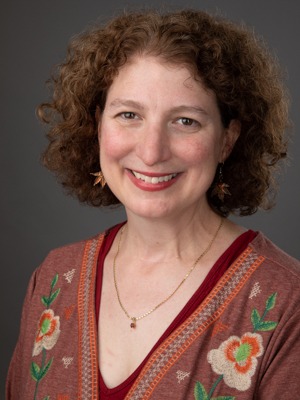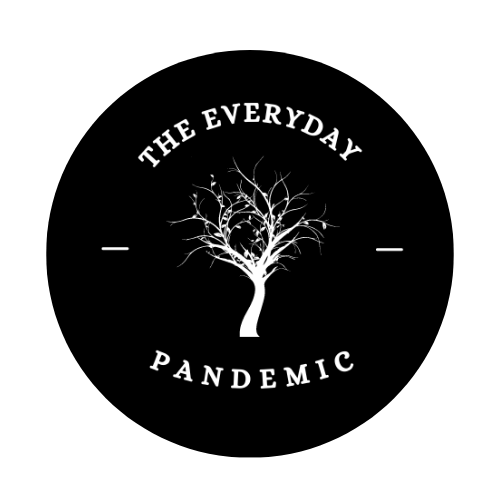Kitty Pandemic
I name cats after trees: Cedar, Sycamore, and Maple. And Star Wars: Yoda and Obi. And songs: Ziggy and Stardust. And legumes: Sweet Pea and Chickpea. This brood multiplies during the pandemic and now I am truly the crazy cat lady of the neighborhood. My own cat, Ginkgo, grows jealous as I toss them treats and sprinkle catnip, like fairy dust, from my porch. Last night, they begged for treats and kept rounding the house, nearing the busy street. I chased them back between the houses, bra-less and flipflopped, then created a rope toy with a wine cork attached, hanging it down from my porch to distract them. I talk to my friends, admit I need help, look for safe places to home the little ones who don’t know any better yet. I won’t forgive myself if they get hurt or begin to multiply further, so I plan to catch them and get them taken care of to give other lonely people joy in these dark times. I hope I survive the process and that I once again can concentrate on grading, writing, and all those things I did before the kitty pandemic in my backyard.
Intersections
These days are marked by sameness,
and little variations of patterns:
different coffee, cat food, walk routes,
music or news on the radio,
schoolwork and emails, Netflix or TV,
grilled cheese or cheese and crackers,
stir fry or veggie burgers.
You long for routine, but also grow weary.
Yesterday, after your walk on the trails,
You spot a young Black man steering his stalled car.
An Asian American woman, buff and strong,
exercising nearby, begins to push.
You join her, throw your weight against the white sedan
toward the garage on the corner.
Before the busy intersection, two guys come running:
one Black and one white,
to ostensibly help the two women,
and the four of you get him through the light,
into the parking lot. Some are masked
and some are not. It’s a joint effort,
eight hands on a bumper, taking only a few minutes.
You wish him luck, head back to your lives
in four different directions.
You feel stronger, empowered, heartened by a random act
of kindness by passersby, here at this intersection
in Pittsburgh, during a pandemic.
You hope the car started again,
that he didn’t get charged an arm and a leg to fix it
by Bob, the mechanic, and that the young man
felt loved and cared for, in that small moment of solidarity.
First Visit
When your dear old friend appears on your doorstep
after nearly two months of quarantine,
you find yourself grateful for his embrace, his eye sparkle,
deep in person conversations.
You see the park with new eyes: the new leaves burst with more life—
you discover new alleys you never walked down before,
note the curve in a concrete step, the irrigation system in a raised bed,
the vibrance of a dogwood beside a Japanese maple.
You feel a little more daring with him nearby,
pluck a lilac stem on the main drag, stick it in your pocket on the walk home,
place it in a little vase with the red daisy, severed too soon
from the plant on your doorstep.
You try new food other than what you make in your kitchen,
give the limping restaurants business,
feast on Turkish appetizers,
picnic on your porch with a bottle of red wine.
Even pizza from the local shop feels decadent.
You break the rules, eat it on your futon,
listen to French music,
open another bottle of wine.
After morning coffee, he helps you replace a light bulb
in your hallway, which will brighten dark nights to come.
And then, after one more embrace, he is gone, back on the road,
to your home city, to take care of business, reopen his shuttered restaurant.
It may be a while before you see him or any person again.
Your eyes fill suddenly, as he rounds the corner and you find yourself still waving,
come back to your waiting cat, quiet house, turn your radio to the classical station,
eat your cereal, give your cat treats, try to resume your routine.
But this loss hangs in the air. On your little walk later, You hear the first lone wood thrush of the year, singing her heart out at the wood’s edge, hoping to hear back from her friend, any moment now.

About the Series: These poems are a part of our ongoing series exploring isolation, exile, and “The Everyday Pandemic.” With the arrival of COVID-19 new realities emerged. Isolation became ubiquitous. Everyday movement suddenly came with great risk. The spaces that once brought order and safety became malleable and uncertain. Throughout this series it is our hope to create an alternative conversation to the dominant COVID-19 discourse: one that captures the daily toll of life through the pandemic from the perspective of writers and artists who are familiar with the experience of isolation and exile. With this in mind, we’ve collected stories, poems, nonfiction essays, and digital art from writers and artists from all walks of life and from all around the globe.
Anne M. Rashid is a professor of English and director of Women’s and Gender Studies at Carlow University. She has published poetry in Adagio Verse Quarterly, Lit Candles: Feminist Mentoring and the Text, The Metro Times, Pittsburgh’s City Paper, Broad River Review, Paterson Literary Review, Pittsburgh Quarterly and The Fourth River and is working on a poetry manuscript.



